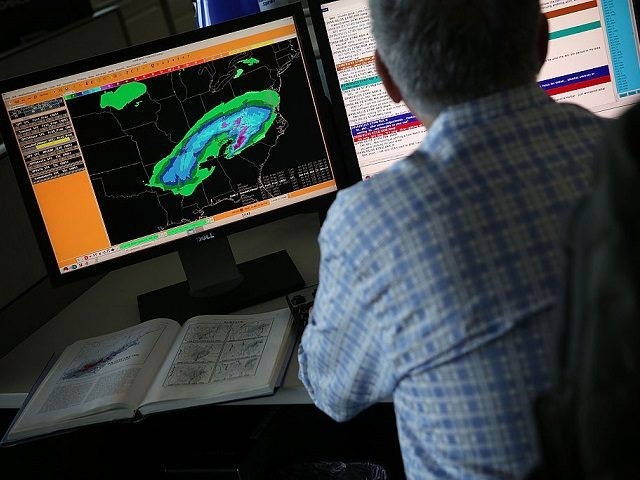Climate change has impaired the ability of meteorologists to accurately predict severe weather events, according to the director of India Meteorological Department (IMD).
In an article published Sunday in the Hindustan Times, Dr. Mrutyunjay Mohapatra insisted climate change has heightened the unpredictability of weather patterns, making forecasting more difficult.
“Climate change has increased the instability in the atmosphere, leading to an increase in convective activity — thunderstorms, lightning and heavy rainfall,” Mohapatra said. “The severity of cyclones in the Arabian Sea is also increasing.”
“This increase in the frequency of extreme weather events is posing a challenge to forecasters,” he continued. “Studies show that the ability to predict heavy rainfall is hampered due to climate change.”
Because of this, the IMD is augmenting its observational network with the addition of radars, automatic weather stations, rain gauges, and satellites to improve accuracy in weather predictions.
“Climate change is a fact and we need to plan all our activities accordingly,” Mohapatra said.
Despite enormous scientific advances, weather forecasting has remained proverbially inaccurate because of the inherent unpredictability of weather and the nearly infinite number of variables affecting outcomes, which has led some scientists to question the still less reliable climate forecasts stretching out into future decades.
Dr. Duane Thresher, a climate scientist with a PhD from Columbia University and NASA GISS, who has done pioneering work in both tree ring climate proxy modeling and ocean climate proxy modeling, has asserted that climate models are intrinsically flawed.
“Climate models are just more complex/chaotic weather models, which have a theoretical maximum predictive ability of just 10 days into the future,” Thresher has stated. “Predicting climate decades or even just years into the future is a lie, albeit a useful one for publication and funding.”
Scientists us climate “proxies” like tree rings and ice cores, Thresher says, as substitutes for real climate measurements. The inferences reached are “inaccurate and unreliable well beyond what is required for the conclusions drawn.”

COMMENTS
Please let us know if you're having issues with commenting.